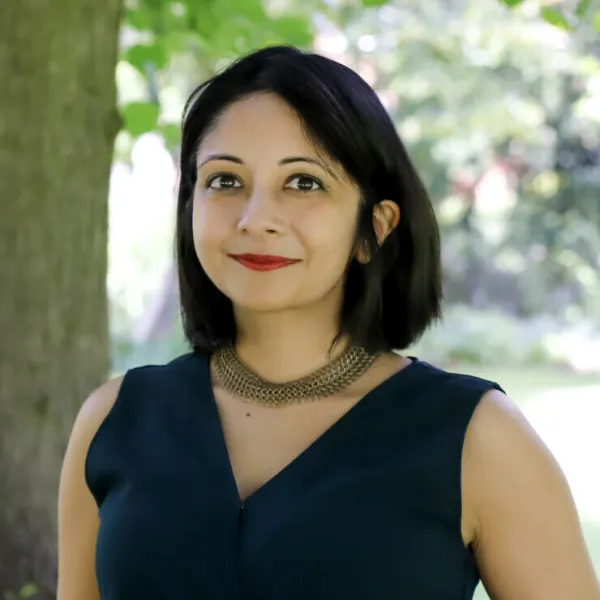United Kingdom

Tanvi Solanki
Tanvi Solanki is Associate Professor of German and Comparative Literature at Underwood International College at Yonsei University in Seoul, South Korea. Previously, she was the Stanford H. Taylor Postdoctoral Associate at Cornell University, after receiving her PhD at Princeton University and B.A. at the University of Chicago. She has held research positions at Humboldt University, Max Planck Institute for the History of Science, and the School of Advanced Study at the University of London. She has received fellowships from institutes including the Andrew Mellon Foundation, the DAAD, the Fritz Thyssen Stiftung, and the Volkswagen Foundation. She will be a Visiting Fellow at Cambridge University’s Clare Hall from 2025-2026. In her research, she employs close analysis of works from eighteenth- and nineteenth-century intellectual history to establish methods and concepts for moving forward contemporary conversations in Sound Studies and the aural turn, and with re-thinking cultural diversity and alternative forms of belonging which are not ocularcentric. These include the concepts and practices of aural cultural diversity, aural racism, cultural acoustics, aural philology, and listening to difference, which emerge from her historical research on the sensory and embodied dimensions of philology, sound studies, and 18th-19th century German intellectual history, literature and media.
At CRASSH, Tanvi Solanki will investigate how eighteenth- and nineteenth-century German philologists’ frequently agonistic relation to listening to difference – temporal, racial, linguistic, cultural, geographical – played out in disciplinary formations in the humanities. She will focus on canonical figures such as the Schlegel brothers, J.G. Herder, Max Müller, and Wilhelm von Humboldt, and examine their sources for theorizing difference and cultural diversity through their textually mediated readings and translations of originally oral and orally mediated works from antiquity such as works Homer and the Hebrew Bible, and the Sanskrit Vedas, Bhagavada Gita, Mahabharata, and the Ramayana. She will research ethnographic travel reports from missionaries, scientists, geographers, envoys and others about the Americas, Asia, Africa, Greece, Italy, and the Near East which comprised their sources.
The second strand of her research at CRASSH will move beyond German philological renderings of the Sanskrit canon to consider how they migrated back into India. Rather than a strictly ocularcentric textual approach to these works, in India, they circulate in a variety of multi-sensory media, including graphic novels, television serials, live performances, movies, and songs. Such a circulation was––and continues to be––a highly effective way of constructing a nationalist political-theology, which has its links to the German Romantics’ reception of Indian works. Although the German Indologist ethos has been widely exposed as the origins of racism in the humanistic disciplines, the lasting influence of Germany’s reception of these works in India remains to be examined, particularly its affective and sensory dimensions. Ultimately, this reception was instrumental in the creation of Indology as a discipline and its ramifications, which marks one of the origins of racism in the humanities.
